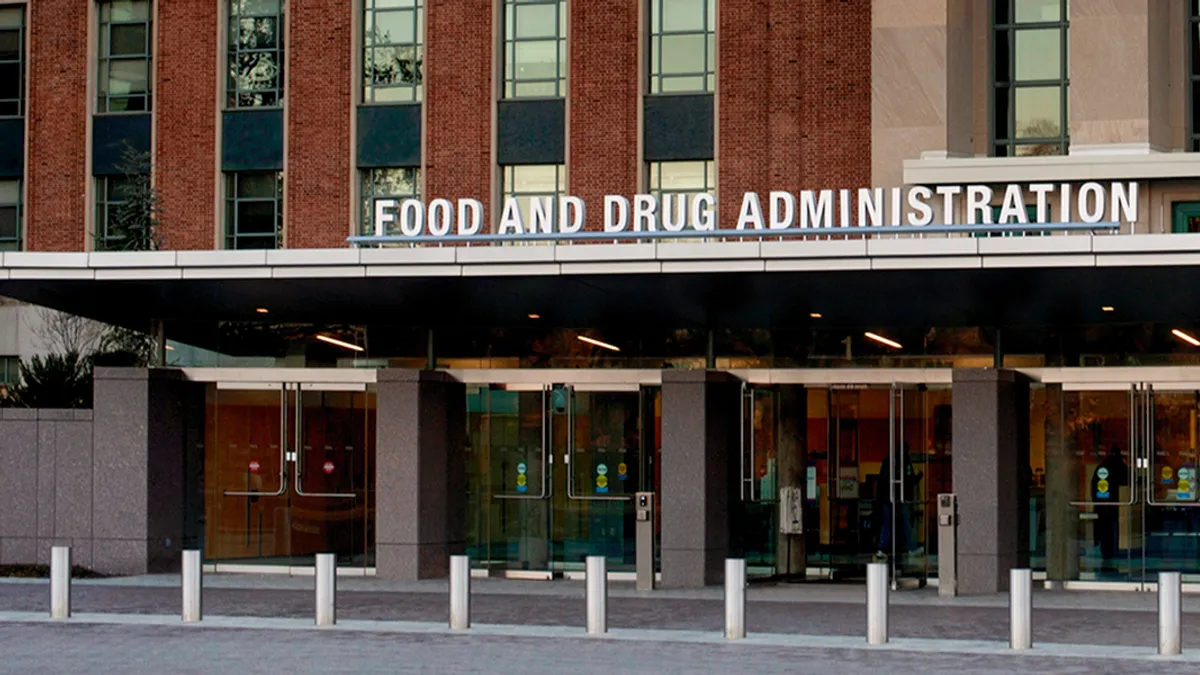Dive Brief:
- FDA on Monday toughened it requirements for coronavirus antibody tests, meant to help identify individuals infected with the virus who may have developed immunity. Developers of serological testing are now required to submit a request for emergency use authorization for their products.
- The agency's March 16 policy on COVID-19 tests allowed regulatory flexibility to antibody tests, which could enter the market without securing an EUA, to provide labs and healthcare providers with "early access" to these products. Now, under a revised policy, manufacturers must submit an EUA request with their validation data within 10 business days from the date they notified the FDA of their validation testing, or from the May 4 issuance of the policy — whichever is later.
- The new regulatory approach also outlines specific performance threshold recommendations for specificity and sensitivity for all serology test developers. The change comes 10 days after preliminary findings from a House Oversight and Reform Subcommittee investigation showed numerous companies are taking advantage of the crisis by marketing fraudulent antibody tests.
Dive Insight:
Antibody tests designed to help public health officials understand a person’s or population’s exposure to COVID-19 have been flooding the market since the FDA's initial March 16 policy. Questions have mounted in recent weeks about the accuracy of serological testing currently available that have not received agency review and emergency use authorization.
In particular, the House subcommittee's April 24 report found the FDA "unable to validate the accuracy of antibody tests that are already on the market" and asserted that the agency "has taken no public enforcement action against any company, and has not conveyed any clear policy on serological tests."
Commissioner Stephen Hahn on Monday defended the original policy, telling reporters "it was critical for the FDA to provide regulatory flexibility for serologic test developers, given the nature of this public health emergency and an understanding that the tests were not to be used as the sole basis for COVID-19 diagnosis."
The Association for Public Health Laboratories praised the changes, though noted they were late in coming.
“We’ve long been concerned that allowing tests on the market that have not been approved and authorized for use is a recipe for disaster. This revised policy makes a lot of sense and should have been in place over the last six weeks," the group's CEO Scott Becker said in a statement.
A number of potentially harmful consequences have become apparent since the March policy.
The agency acknowledged in a blog post on Monday that "unscrupulous actors [are] marketing fraudulent test kits and using the pandemic as an opportunity to take advantage of Americans’ anxiety." According to the agency, some test developers have falsely claimed their antibody tests are FDA-approved or authorized, or are performing poorly based on an independent evaluation by the NIH.
As a result, Hahn made the case that "the careful balancing of risks to benefits has shifted to the approach we've outlined today in our policy update."
The FDA chief said that manufacturers unable to comply "will withdraw their products from the market, and we will be working with them to help them do that." Jeff Shuren, director of the Center for Devices and Radiological Health, added that if the agency "finds problems with a particular test and we are not able to resolve those with the test developer, we can withdraw the authorization."
As of Monday, the FDA has issued 12 EUAs for coronavirus antibody tests and reportedly has more than 250 requests "in the pipeline of assessment" for pre-EUA or EUA review, according to Hahn, who said the agency "has taken action" against firms unlawfully marketing tests, and will continue to do so.
In addition to updating the policy, FDA said it has introduced a more streamlined process to support EUA submissions and review, including voluntary EUA templates for antibody tests developers (one for commercial manufacturers and one for CLIA-certified high-complexity labs) to help them prepare and submit EUA requests.











